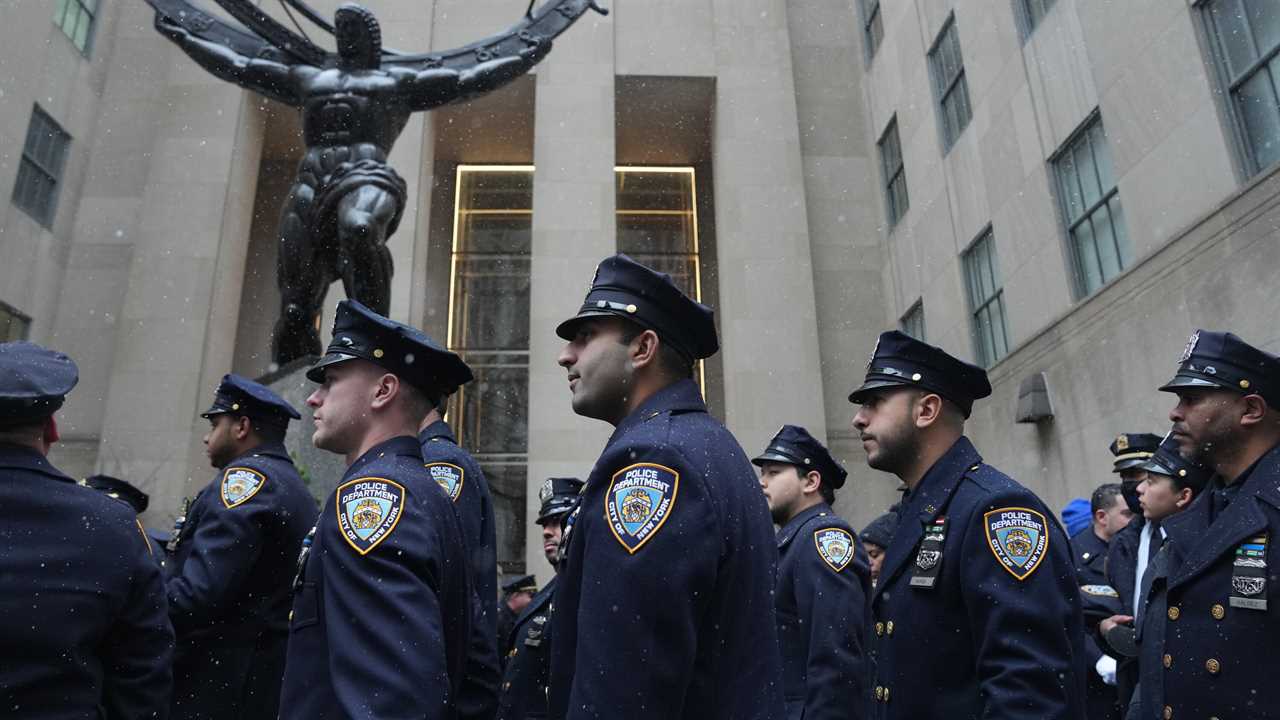
WASHINGTON — Susan Rice, the White House domestic policy adviser, called the leaders of the nation’s largest policing groups last month to promise a significant reset in their relationship as the Biden administration finished an executive order on police reform, a move that averted a potential breach that had been brewing for months, according to several people briefed on the calls.The groups welcomed Ms. Rice’s outreach, which amounted to a vow to incorporate more of their thinking in the order and possibly an implicit mea culpa. The White House had solicited input from the groups, but had not engaged with them on substance and details; their frustrations only soared in the days before her phone calls, when they were blindsided by the leak of an 18-page draft executive order that contained language they found objectionable.Ms. Rice’s course correction dovetails with a broader shift in the White House toward a more centrist stance on policing as violent crime rises. And it underscores President Biden’s struggle to satisfy civil-rights groups, whose cries for reform hit a fever pitch after the murder of George Floyd at the hands of the police in May 2020, while blunting critics who say Democrats are soft on crime.This more centrist view is likely to be on display when Mr. Biden meets on Thursday with the newly elected mayor of New York City, Eric Adams, a former police captain whose ascent illustrates how far Democrats have moved to the center on criminal justice issues, just two years after progressives began calling to defund the police.In an interview, Ms. Rice sought to bridge that gap, saying that Mr. Biden’s recognition that responsible, respectful policing is essential for effective public safety has not undermined his longtime support for law enforcement.ImagePresident Biden will meet on Thursday with Mayor Eric Adams of New York, a former police captain whose ascent illustrates how far Democrats have moved to the center on criminal justice.Credit...Jeenah Moon for The New York Times“Yes, we need police on the streets, well equipped, but we need them to have the cooperation and trust of the community. These things are not in opposition — they are mutually reinforcing,” Ms. Rice said.She also noted that the draft executive order was not close to being done, and that many issues remained unresolved.One sticking point is a guideline that could push federal officers, and most likely the state and local police, to tighten their use-of-force standard, which regulates when officers can shoot. Civil liberties groups have lauded the change, but police leaders have said they cannot abide it.Chuck Wexler, the executive director of the Police Executive Research Forum, which advises departments on best practices, said that he had seen “significant breakthroughs” in communications with the White House in recent weeks.“We are not in opposition to reforms,” he said. “We wanted to make sure that the executive order balanced the need for police reform with the changing nature of crime and policing happening across the country.”The roots of the order began with the murder of George Floyd by a Minneapolis police officer and the subsequent calls for reforms to address issues such as racism in policing and the use of lethal force.As it became clear in September that a bill known as the George Floyd Justice in Policing Act would fail to pass the Senate, the White House began looking more closely at addressing some of the issues via an executive order. Ms. Rice and her team led its development.ImageSusan Rice, the White House’s head of domestic policy, approached policing groups in recent weeks to promise a reset in the administration’s relationship with them.Credit...Doug Mills/The New York TimesIn late summer, according to people familiar with the process, the White House began holding conference calls with groups it had spoken with about the Floyd legislation, including leaders of police groups — many of whom had endorsed aspects, but not all, of the bill — as well as civil rights groups and representatives of families of people killed by the police.Those early calls included two listening sessions with law enforcement groups in late October: one with Terrence M. Cunningham, the deputy executive director of the International Association of Chiefs of Police, and Jim Pasco, the executive director of the Fraternal Order of Police and a longtime friend of Mr. Biden; and another with a broader group of similar organizations, an official said.The White House held about 20 meetings with various law enforcement groups from August to December, according to one official. But police leaders told members of Congress and senior law enforcement officials that the engagement seemed perfunctory.Ms.By: Katie Benner, Zolan Kanno-Youngs and Charlie Savage
Title: White House Moves to Reset Relationship With Police Leaders
Sourced From: www.nytimes.com/2022/02/02/us/politics/policing-white-house-law-enforcement.html
Published Date: Thu, 03 Feb 2022 00:11:46 +0000
Read More
 UK PoliticsWorld PoliticsVideosPrivacy PolicyTerms And Conditions
UK PoliticsWorld PoliticsVideosPrivacy PolicyTerms And Conditions
